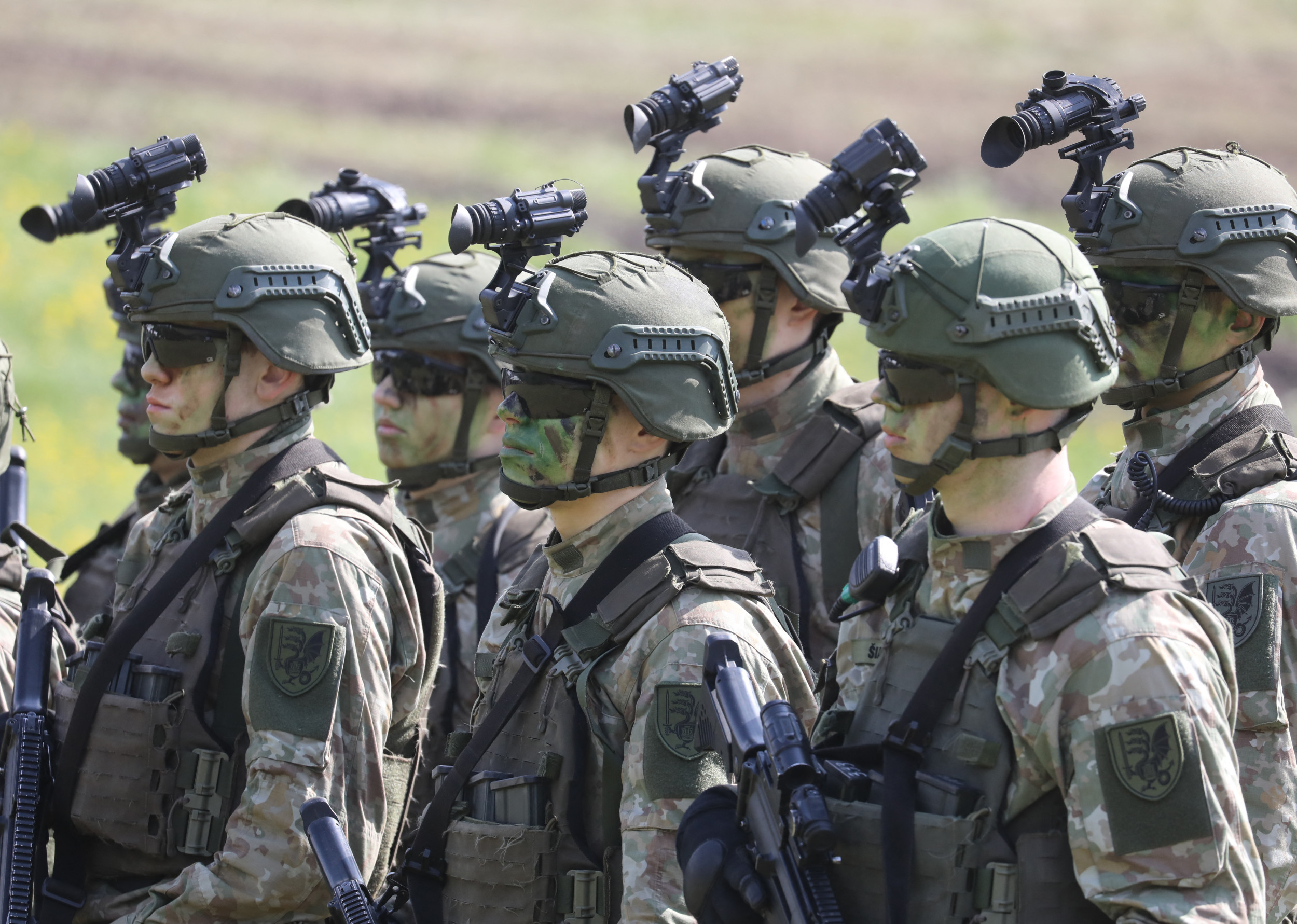Russian President Vladimir Putin's spokesman said U.S. President Joe Biden's derogatory comments about Russia's economy were "inherently incorrect" as senior diplomats from both countries met Wednesday in Geneva for talks.
On Tuesday, Biden spoke to members of the U.S. intelligence community, saying that Russia's economy has "nuclear weapons and oil wells and nothing else."
"He knows he's in real trouble, which makes him even more dangerous, in my view," Biden said, referring to Putin.
Kremlin spokesman Dmitry Peskov rejected Biden's comments on Wednesday, saying they were based on "erroneous knowledge and understanding of modern Russia." Peskov also noted that Biden was speaking to the U.S. intelligence community and that "such rousing statements are in demand from this audience."
For more reporting from the Associated Press, see below:

The U.S. and Russian senior diplomats held what the State Department described as "substantive and professional" talks on arms control and other strategic issues on Wednesday despite myriad other differences that have sent relations into a tailspin.
The State Department said the discussions in Geneva produced no breakthroughs but said they did yield the minimum for a positive result of such negotiations: an agreement to meet again in the context of talks endorsed by Biden and Putin.
"We remain committed, even in times of tension, to ensuring predictability and reducing the risk of armed conflict and threat of nuclear war," the department said in a statement. The two presidents had agreed to resume strategic talks when they met in Geneva last month.
"Today's meeting in Geneva was the beginning of this dialogue with the Russian Federation," it said. "The U.S. delegation discussed U.S. policy priorities and the current security environment, national perceptions of threats to strategic stability, prospects for new nuclear arms control, and the format for future Strategic Stability Dialogue sessions."
The two sides were represented by U.S. Deputy Secretary of State Wendy Sherman and Russian Deputy Foreign Minister Sergey Ryabkov. State Department spokesman Ned Price said they had agreed to hold another high-level round of talks in late September. The U.S. team will travel to Brussels on Thursday to brief NATO allies on the talks, he said.
The key issues at stake in the strategic talks have taken on new importance since the Trump administration withdrew from two treaties with Russia and had been prepared to allow a third—New START—to lapse before Biden took office and decided to extend it.
One hurdle in the talks is Russia's demand that the U.S. stop resisting limits on its missile defenses, which the Russians view as a long-term threat and the Americans see as a deterrent to war.
The missile defense dispute has shot down past efforts to broaden the scope of arms control negotiations to include more than the traditional category of "strategic," or long-range, nuclear missiles. Now it is among several disagreements—magnified by mutual distrust—likely to determine whether the world's two biggest nuclear powers can avoid a new arms race.
At stake are what Biden has called "new and dangerous and sophisticated weapons that are coming on the scene now that reduce the times of response, that raise the prospects of accidental war."
The Russians have long insisted there can be no strategic stability without limits on defensive as well as offensive weapons. Russia left no doubt that it will insist that missile defense be part of a future arms control arrangement.
For its part, the Biden administration wants Moscow to agree to limit its so-called non-strategic nuclear weapons, which are not covered by New START. Some arms control experts think this presents the possibility of a tradeoff—negotiations covering missile defenses as well as non-strategic weapons.
The U.S., since Donald Trump was president, has also insisted that China be part of any new arms control arrangements. Russia has said that is up to the Chinese, who have thus far rejected all entreaties to consider the idea.

Uncommon Knowledge
Newsweek is committed to challenging conventional wisdom and finding connections in the search for common ground.
Newsweek is committed to challenging conventional wisdom and finding connections in the search for common ground.
About the writer
To read how Newsweek uses AI as a newsroom tool, Click here.





